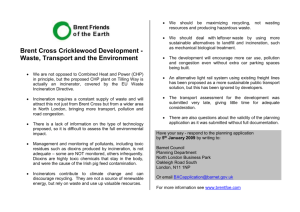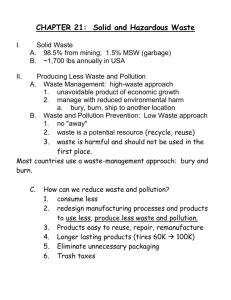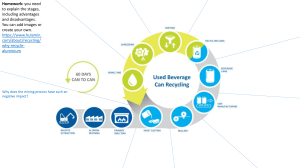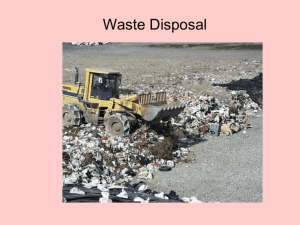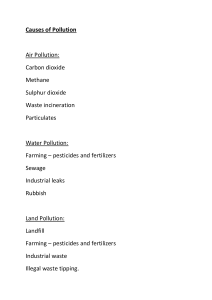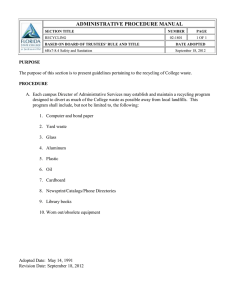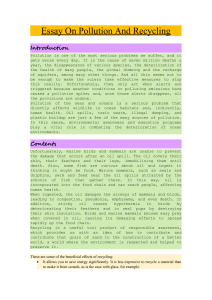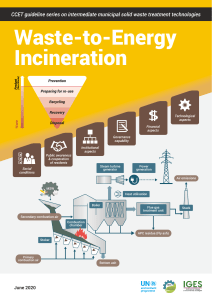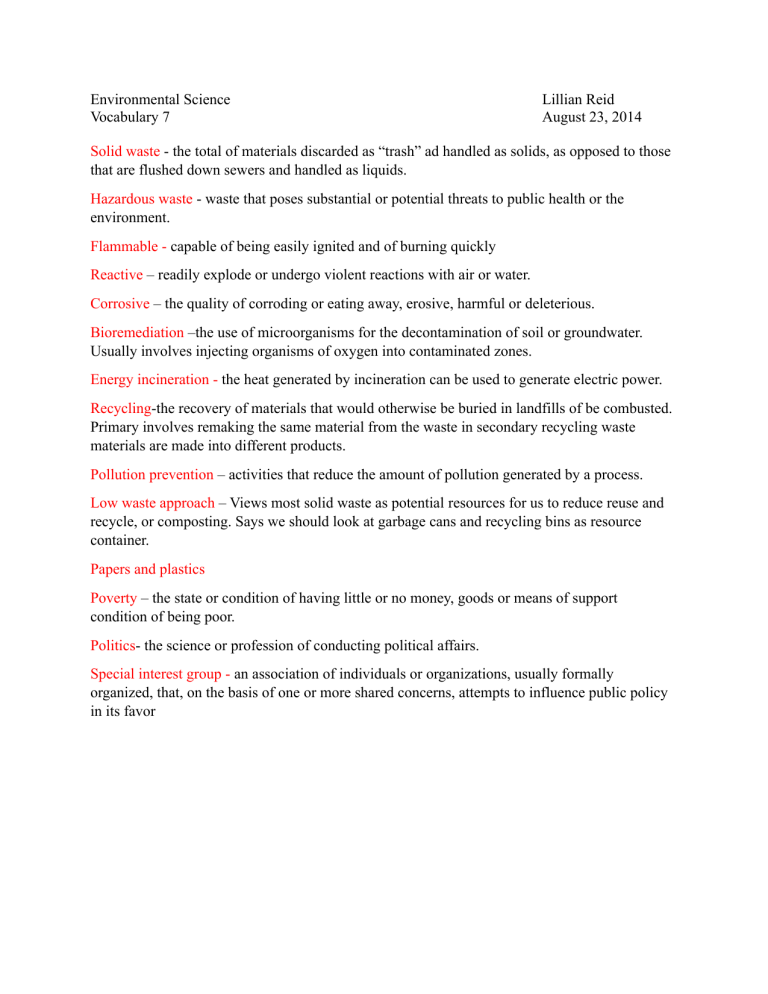
Environmental Science Vocabulary 7 Lillian Reid August 23, 2014 Solid waste - the total of materials discarded as “trash” ad handled as solids, as opposed to those that are flushed down sewers and handled as liquids. Hazardous waste - waste that poses substantial or potential threats to public health or the environment. Flammable - capable of being easily ignited and of burning quickly Reactive – readily explode or undergo violent reactions with air or water. Corrosive – the quality of corroding or eating away, erosive, harmful or deleterious. Bioremediation –the use of microorganisms for the decontamination of soil or groundwater. Usually involves injecting organisms of oxygen into contaminated zones. Energy incineration - the heat generated by incineration can be used to generate electric power. Recycling-the recovery of materials that would otherwise be buried in landfills of be combusted. Primary involves remaking the same material from the waste in secondary recycling waste materials are made into different products. Pollution prevention – activities that reduce the amount of pollution generated by a process. Low waste approach – Views most solid waste as potential resources for us to reduce reuse and recycle, or composting. Says we should look at garbage cans and recycling bins as resource container. Papers and plastics Poverty – the state or condition of having little or no money, goods or means of support condition of being poor. Politics- the science or profession of conducting political affairs. Special interest group - an association of individuals or organizations, usually formally organized, that, on the basis of one or more shared concerns, attempts to influence public policy in its favor

